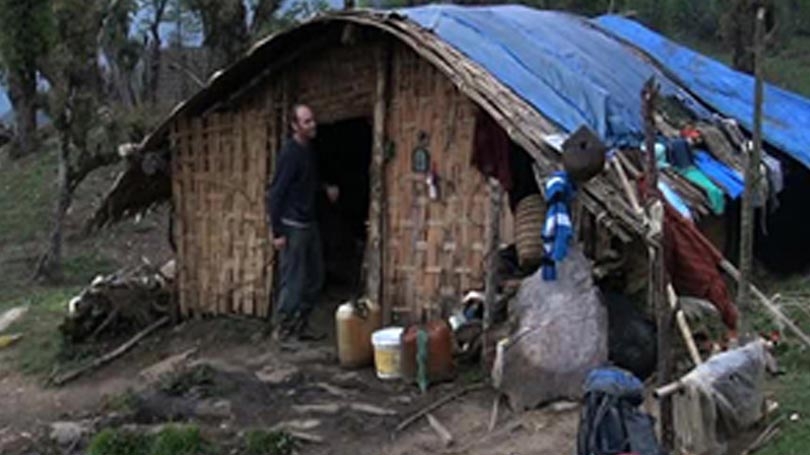
Brian Young was able to pursue his resesarch in Bhutan in his Master of Arts in Liberal Studies program, thanks in part to the Alumni Research Award.
Brian Young, Master of Arts in Liberal Studies (MALS) student, describes his experience living with nomadic yak herders in Bhutan, made possible in part by the Award.
"I am interested in learning about how development is impacting the everyday life and culture of the Bhutanese. Specifically, my research focuses on the nomadic yak herders of Merak, a town in Bhutan. The Graduate Alumni Research Award allowed me to afford travel to Bhutan to live there for several months with a Bhutanese family.
While in Bhutan, I interviewed different people, but mostly focused on one family as representative of Merak people and culture. I looked at the experiences of three generations (grandparents, parents, and children) and how separate periods of development, which coincide with each generation, have formed the identity of each generation and their understanding of everyday life. I was also focusing on how development has impacted relationships between generations and the definition of “family.” This trip allowed me to collect audio recordings of over one hundred interviews and rituals, as well as video and audio recordings of daily life and stories about religious beliefs and practices. I am currently in the process of reviewing my video recordings and transcribing my interviews to better understand the data collected. I will analyze the interviews to look for commonalities and recurring themes and subjects.
Living with this family in the jungle was an interesting and unique experience. I am very grateful that I was able to have this opportunity and that the family allowed me to participate in their daily activities. Various factors are currently causing changes in their lives and practices, including: government plans to buy their pastureland and relocate herders; the forest industry’s commercial cutting down of trees that the herders use for fodder; and the children of herders receiving more education and choosing to leave herding and pursue jobs in the city. These developments are leading to the loss of traditional language and dress. Schools are teaching students English and Dzongkha (the national language of Bhutan), and they are no longer speaking their native languages of Scharchop, Monpa, and Brokpa (the languages of the parents in the family I stayed with).
My observations and recordings will shed light on the ways in which these changes are impacting the lives of nomadic herders and how these impacts may have an effect on wider society. While members of the older generations are concerned about the loss of traditional dress and language, close ties are still maintained between children and parents in the family that I lived with, for example through daily conversations by cell phone. My analysis of these unique dynamics will speak to larger issues of how communities change and adapt in response to developmental forces.
I am thankful to the graduate alumni whose generosity has allowed me to go to Bhutan and pursue this research."